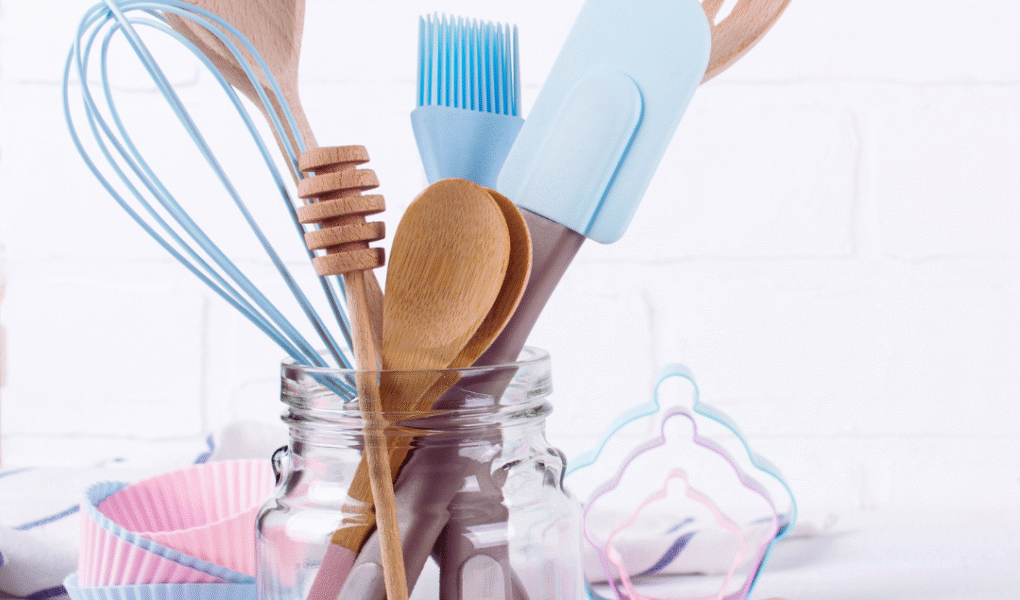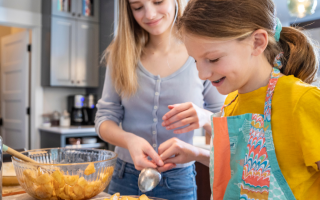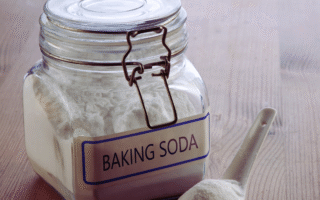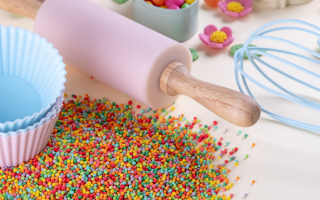For anyone passionate about baking at home, having the right tools can make all the difference in achieving delicious results. Equipping a kitchen with essential baking tools simplifies the process and enhances creativity in the culinary experience. With a well-organized set of instruments, bakers can tackle a wide range of recipes, from simple cookies to elaborate cakes.
Not every kitchen needs the same tools, but certain must-haves stand out for their versatility and ease of use. Items like high-quality measuring cups, mixing bowls, and baking sheets form the foundation that can elevate even the most straightforward recipes. Investing in these essentials leads to more consistent outcomes and a more enjoyable baking journey.
Whether someone is a beginner or an experienced baker, knowing what tools to choose can be overwhelming. Exploring the must-have items not only helps streamline the baking process but also inspires confidence to experiment with new recipes and techniques. Embracing the right tools turns baking into both a fun and rewarding activity.
Essential Baking Tools for Every Home Baker
A well-equipped kitchen makes baking more efficient and enjoyable. Key tools like mixing bowls, spatulas, and measuring instruments play crucial roles in achieving perfect results.
Mixing Bowls and Whisks
Mixing bowls come in various sizes and materials, including stainless steel, glass, and ceramic. Stainless steel bowls are durable and often preferred for their lightweight nature and resistance to staining. A set of different sizes allows for versatility when preparing different ingredients.
Whisks are essential for blending ingredients smoothly. A balloon whisk works well for aerating mixtures, while a flat whisk is better for sauces and gravies. Choosing a whisk with a comfortable handle reduces fatigue, making the mixing process easier and more effective.
Spatulas and Dough Scrapers
Spatulas serve multiple purposes in baking. A rubber spatula is ideal for folding ingredients, scraping bowls, and ensuring every bit of batter is utilized. They come in various blade sizes and flexibility, allowing for precision when working with delicate mixtures.
Dough scrapers are equally important for handling dough. They help divide and shape dough with ease. A combination of a rigid scraper for cutting and a flexible one for scraping surfaces ensures efficiency in handling different dough types.
Measuring Cups and Kitchen Scales
Accurate measurements are crucial in baking. Measuring cups come in both dry and liquid varieties. Dry measuring cups are typically nested and designed to hold specific volumes, while liquid measuring cups often feature a spout for pouring.
Kitchen scales provide the highest level of precision when measuring ingredients by weight. This is particularly important for baking, where even slight inaccuracies can lead to failures. Digital scales offer easy-to-read displays and tare functions, ensuring that bakers can weigh multiple ingredients efficiently without the need for multiple containers.
Bakeware Must-Haves: Pans and Sheets
Selecting the right bakeware is essential for any home baker. The types of pans and sheets can significantly affect the outcome of baked goods, ensuring even cooking and easy release. This section focuses on fundamental bakeware options that every baker should consider.
Cake Pans and Round Cake Pans
Cake pans are designed for specific styles of cakes. Round cake pans, typically available in various sizes, are ideal for layer cakes. These pans often feature a smooth surface, which helps cakes rise evenly.
Aluminum cake pans are a popular choice due to their excellent heat conductivity. This ensures that cakes bake uniformly. Nonstick options are also available, making it easier to release cakes without sticking. For more intricate designs, a springform pan is useful, especially for cheesecakes. This pan allows for easy removal without damaging the cake.
Sheet Pans, Baking Sheets, and Cookie Sheets
Sheet pans are versatile and used for various baked goods, from cookies to roasted vegetables. A standard half-sheet pan measures about 18 by 13 inches, making it suitable for batch baking. Cookie sheets typically have a slightly lower rim to allow for easy access.
Baking sheets can come in different materials, such as aluminum or stainless steel. Nonstick sheets provide a hassle-free baking experience. For those baking large quantities, consider using parchment paper to prevent sticking and facilitate easy cleanup.
Loaf Pans, Muffin Pans, and Specialty Bakeware
Loaf pans are primarily used for quick breads or pound cakes. They come in various materials, including metal and glass, each affecting baking time slightly. Silicone loaf pans are also gaining popularity for their flexibility and ease of release.
Muffin pans are typically designed with individual cups to create perfectly shaped muffins or cupcakes. Standard muffin pans have a six or twelve-cup design. Specialty bakeware, such as bundt pans, features unique designs for decorative cakes. A pie pan is essential for creating delicious pies, with options like glass or ceramic for optimal crust browning.
Nonstick and Oven-Safe Bakeware
Nonstick bakeware is a game-changer for many home bakers. It reduces the need for greasing and helps ensure an easy release of baked goods. Most nonstick pans can withstand high temperatures, making them suitable for a variety of recipes.
While selecting bakeware, ensure it is oven-safe to avoid damage during baking. Some materials, like glass or ceramic, offer excellent heat retention. It’s important to follow manufacturer guidelines regarding temperature limits to maintain the integrity of the bakeware and guarantee successful baking results.
Baking Accessories for Professional Results
Having the right accessories can elevate home baking to professional levels. Essential tools like parchment paper, silicone mats, and accurate thermometers ensure consistent results.
Parchment Paper and Silicone Baking Mats
Parchment paper is a versatile baking essential known for its non-stick properties. It prevents baked goods from sticking to pans, making cleanup easier. Bakers often use it for cookies, cakes, and roasting vegetables.
Silicone baking mats offer a reusable alternative. They can withstand high temperatures and provide a non-stick surface for baking. Both options reduce the need for grease or oil, resulting in healthier baked goods.
These tools help achieve even baking and better browning. They are particularly useful for delicate items like pastries, ensuring they release effortlessly.
Oven Thermometers and Cooling Racks
Oven thermometers provide precise temperature readings, essential for successful baking. Ovens can often be inaccurate, leading to underbaked or overbaked products. A thermometer ensures that the baking temperature is accurate, allowing for better results.
Cooling racks are another critical accessory. They allow baked goods to cool evenly, preventing a soggy bottom. Placing cakes and cookies on a rack promotes air circulation, preserving texture and appearance.
Using these tools together leads to consistently high-quality baked items. They help bakers maintain temperature control while ensuring proper cooling.
Pastry Brushes and Sieves
Pastry brushes are useful for applying glazes, egg washes, or butter. A good brush can enhance the appearance and flavor of pastries. Silicone brushes are easy to clean and durable, making them a popular choice among bakers.
Sieves are essential for ensuring smooth batters and aerated flour. They remove lumps and incorporate air into dry ingredients. This step can significantly impact the texture of cakes and pastries.
Together, these two tools enhance the presentation and quality of baked goods. They play a key role in achieving professional-looking and tasting results.
Specialty Tools for Advanced Baking Techniques
For advanced baking, specific tools can enhance precision and creativity. Utilizing the right accessories allows bakers to elevate their skills and achieve impressive results with various techniques.
Stand Mixers and Hand Mixers
A stand mixer is an essential tool for serious bakers. It provides power and versatility, allowing for easy mixing of doughs and batters. Most models come with multiple attachments, including dough hooks and whisks, to handle different tasks.
Hand mixers are a suitable option for lighter mixing tasks and offer portability. They are ideal for whipping cream or mixing small amounts of ingredients. Both mixers save time and energy, increasing efficiency during baking.
Pastry Bags, Pastry Tips, and Decorating Tools
Pastry bags are crucial for decorating cakes and pastries. They allow for controlled piping of frosting, fillings, and meringue. Various tips, such as round, star, and leaf, enable different designs and textures.
Along with pastry bags, tools like spatulas and palette knives assist in smoothing and shaping. A turntable is also beneficial for decorating cakes, providing a rotating platform for easier access. These tools combine to enhance presentation quality.
Rolling Pins and Turntables
A high-quality rolling pin is vital for achieving the right dough thickness. Options include traditional wooden pins and silicone varieties with built-in measurement guides. This precision is essential for pastries, cookies, and pie crusts.
Turntables, often used in conjunction with rolling pins, facilitate smooth, even rolling. They are also invaluable when decorating cakes, as they offer a stable base and easy rotation. This combination ensures uniformity in baking tasks.
Immersion Blenders and Serrated Knives
An immersion blender is useful for creating smooth mixtures, such as purees or cake batters. It offers convenience by blending directly in the mixing bowl or pot. This saves cleanup time and reduces the need for additional equipment.
Serrated knives are designed for slicing baked goods without crushing them. They are ideal for cutting cakes, bread, and other delicate items. A good serrated knife ensures clean cuts, maintaining the integrity of baked creations.




